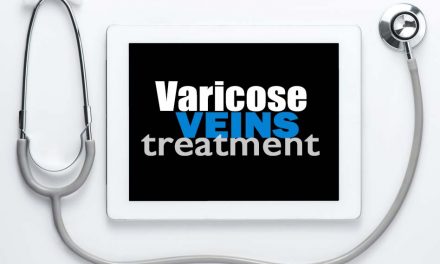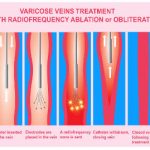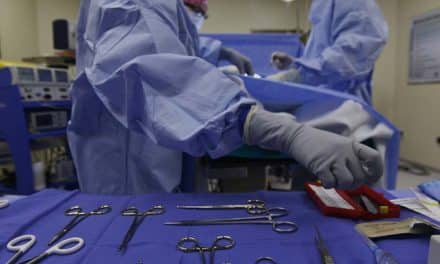
What Are the Ideal Qualifications of a Vein Doctor?

Which Doctors Are Qualified to Treat Veins?
Why All Doctors Are Not Qualified to Be Vein Specialists
Who really is qualified to be a vein specialist?

That additional time is necessary to learn and become proficient in a medical specialty such as surgery, anesthesiology, radiology, or dermatology.
During these training periods, veins are not included in the education.
Only a vascular surgery residency covers all of facets of vein treatments.
Some physicians have become motivated to switch into specializing in veins with the promise of increased incomes and expanded business opportunities. They take the easy way out.
How Most Vein Doctors Become Vein Doctors
Many mid-life crisis doctors enroll in quick weekend classes to obtain a conference certification.
That is often offered through a multiple number of programs and conferences offered by the American College of Phlebology. It’s not a true board certification.
Similar abbreviated conferences are available through cardiology and radiology based programs where veins take up only a small portion of a three-day conference.
It’s done on the weekend so doctors can continue practicing their non-vein based practice and to learn how to “do veins” on the side and supplement their income.
These are in no way formal training programs. They are didactic lectures without any patient involvement or interaction.
They would have made Hippocrates curse.
That’s phlebology (the field of veins and their treatment) – American style.
Some self-proclaimed vein doctors assert that since they already have a medical degree, that it is perfectly safe for them to administer vein treatments which some see as a cosmetic treatment.
In a similar vein (pun intended), a cosmetic surgery board certification with a dollop of charlatanism is also achieved by merely passing a test. Most people don’t know that. The average person assumes a training program like board certified plastic surgeons endure are included with their formal training.
Some board-certified dermatologists, interventionists, and especially vascular surgeons have an expertise to see beyond deceptive shortcuts. All of these accepted specialties know precisely how to treat a specific medical condition.
Vein disease is extremely complicated.
Varicose veins are genetic. You inherit them. Therefore, veins are not curable since they usually recur eventually in other areas of your legs if you live long enough.
Recurrent varicose vein treatments are even more difficult to treat. That takes superior skills, expertise, and usually some imagination. That is the art of vein medicine.
It takes much more than three-day weekend workshops to obtain that degree of expertise and to master the intricate details of the limitless variations of varicose vein disease.
Proficiently handling radiofrequency devices, lasers, phlebectomy (removal of large veins through needle holes) and sclerotherapy is its own area of expertise.
Experience in accomplishing these skills takes many years to perfect.
Physicians with decades of experience are the most proficient in achieving your goals of both medical and cosmetic excellence.
With this information in mind, the question becomes – How do you find the best vein center in your city?
Beware of the Med Spa Vein Center
Doctors who gravitate to the field of treating veins are often entrepreneurial. Opening med spas is the next obvious step for these opportunistic entrepreneurs.
Skin treatments, injections to fill wrinkles and enlarge lips, bogus cellulite treatments as well as questionably effective fat “sculpting” are all on the menu.
Med spas are not all equal. If you don’t believe me there’s a group called the flat earthers who would be glad to welcome you as a member.
Some will have “cosmetic surgeons”, dermatologists, foot doctors or even chiropractors on staff. Nonetheless, that doesn’t mean it is likely that you will be treated by their supervising physicians or wannabe doctors.
Although some med spas use nurses, physician assistants, and nurse practitioners to give injections or shoot a laser, many places use less-than-qualified or barely-trained assistants. Some med spa outfits travel from beauty salon to beauty salon renting the back rooms of these places and haul their lasers around in the trunks of their cars.
Limits of safety and common sense are being pushed.
Common sense and folksy wisdom go together like PB&J.
The great thing about folksy wisdom is that there is always a cute saying to support just about anything.
Want to buy spider vein treatments with Groupon? A fool and their vein removal money are soon parted.
Want to get varicose or spider veins at a med spa? Wise people learn by other people’s mistakes, fools by their own.
Ignore internet reviews of questionable med spa vein practices at your own peril.
The Strong Allure of Making Money, Materialism and Greed
The cosmetic industry is booming.
Aestheticians or cosmetologists are trained to care for the skin.
Nonetheless, that doesn’t include the skin and its contents.
And that doesn’t include veins.
Many med spas are cashing in on the lucrative aesthetic enhancement craze without adequate staff training and with all sorts of personnel with questionable backgrounds.
Legal and governmental med spa regulations are virtually nonexistent in most states. Virginia recently passed a law when a janitor was found giving cosmetic treatments and injured a client in a spa.
However, men and women who come in as a “client” often find themselves morphing into patients without realizing it. That’s especially true when vein treatments are on the menu.
Some people start out having facials, body wraps, waxing, spray tans, or a pedicure. Later they are up sold into having medical treatments.
That’s where the line has been crossed. Beauty treatments mutate into health care. When you become a patient, a truly qualified and trained medical doctor is mandatory. Beauticians don’t cut it.
Many kinds of doctors perform minimally invasive venous procedures but at one time only surgeons could treat veins.
Minimally invasive vein treatments are now often non-surgical. That evolution has allowed untrained non-surgeons from all kinds of specialties to be able to treat veins.
Lasers and non-surgical treatments also made it possible to move from a hospital (a supervised and inspected environment) to the office setting.
In the office vein center, there is absolutely no oversight, inspections, or credentials required.
Should Vein Societies Accept Any Doctor into the Club?
As the minimally-invasive procedures of foam sclerotherapy, microphlebectomy and endovenous thermal ablation were developed, it became possible for physicians of many different specialty backgrounds to perform these procedures in the office setting.
It is now rare for vein procedures for superficial vein disease to be performed in the hospital setting in the United States.
There has been a push by conference organizers and especially the American College of Phlebology to be all inclusive for any doctor who wishes to treat veins.
For that reason, they have the most members of any venous society. That means they permit and endorse physicians of all backgrounds regardless of the speciality in which they trained to practice vein medicine without regard to their skill set, vascular training, or medical specialty.
Let’s be real. The all-inclusive approach may be OK for a vacation.
However, in regards to certifying vein doctors and vein centers, the all-inclusive approach is without merit, is unsafe, and is self-centered. It allows for a multitude of sins.
It is especially self-serving for doctors who organize vein conferences. They want as many doctors and specialists from all different kinds of fields to sell as many seats as possible to increase their profits.
The more – the merrier. It is self-perpetuating.
Every year there are more vein conferences. That means more competition for doctors to fill more conference seats.
It’s a snow-ball effect. Their mission is not to exclude any paying customer at the risk of losing business.
Vascular Surgeons as Vein Doctors
Letting any doctor practice a specialty is the antithesis of the principles of the American Board of Medical Specialties (ABMS) which is to protect the unsuspecting public from incompetent and untrained physicians.
Hospitals don’t accept non ABMS trained specialists and neither should you.
The ABMS was started and created the specialty boards in 1933 to ensure that only those qualified specialists who passed the requirements set up by each board could practice in that specialized area of medicine.
Because only vascular surgery provides the all of the necessary training in vascular disease, it is the most comprehensive board certification available for the treatment of venous disease.
Other specialties including radiology, cardiology, and dermatology – and non-specialists without any specialized post graduate training at all – want to circumvent this time-tested approval process.
The latter specialties offer training in some aspects catheter based techniques but certainly not in all of the necessary procedures like phlebectomy and sclerotherapy. The latter are mandatory to become a competent and complete vein specialist.
Medicare recently met in February 2017 to explore restricting varicose vein treatments because of the over utilization and unsustainability of treating all varicose veins. They asked for the expertise from only one board.
Can you guess who were the only board-certified experts that they trusted for an opinion based on rigorous data?
You guessed it.
Board certified vascular surgeons!
What It Takes to Be the Top of the Field in Treating Veins
Vascular surgeons are the only specialists who devote their lives and limit their interventional practice to only vascular disease.
To be exceptional, a vein specialist must not only come from a comprehensive training program but also take it to the next level by operating in an approved, certified and inspected vein center.
A truly qualified vein specialist must also have something else. It’s that special desire and interest needed to dedicate their entire practice to treating venous patients.
Part-time doesn’t cut it.
Experience and proficiency depends on treating veins each and every day year after year.
The Need for the Credentialing of Vein Centers
The only credentialing body for the treatment of veins in the office setting is the Intersocietal Accreditation Commission or the IAC. Credentialing is only voluntary at this time except for doctors in Massachusetts.
The Intersocietal Accreditation Commission (The IAC) Vein Center Division Board of Directors is made up of 14 representatives from 9 medical societies.
These societies include the:
- Society for Vascular Surgery
- Society for Clinical Vascular Surgery
- American College of Surgeons
- American Venous Forum
- American Academy of Dermatology
- American College of Phlebology
- Society for Vascular Ultrasound
- Society for Vascular Medicine
- Society of Interventional Radiology
These societies with vein interests have come together to stop the haphazard practice of treating veins in this country by unqualified and unsafe doctors by establishing national standards.
Their seal of approval is further assurance that patients can rely on. Vein center certification is your only indication that a vein center’s safety and qualifications have been comprehensively evaluated.
They do not police vein centers. They only accredit them. But is a step in the right direction when there was no supervision, inspection or oversight.
For your own safety, only choose a vein center that has pass rigorous national standards to become certified.
Achieving this elite status differentiates doctors in terms of motivation and in striving for excellence.









